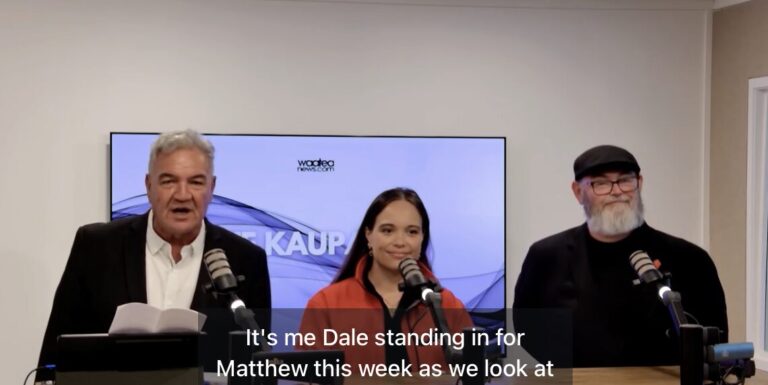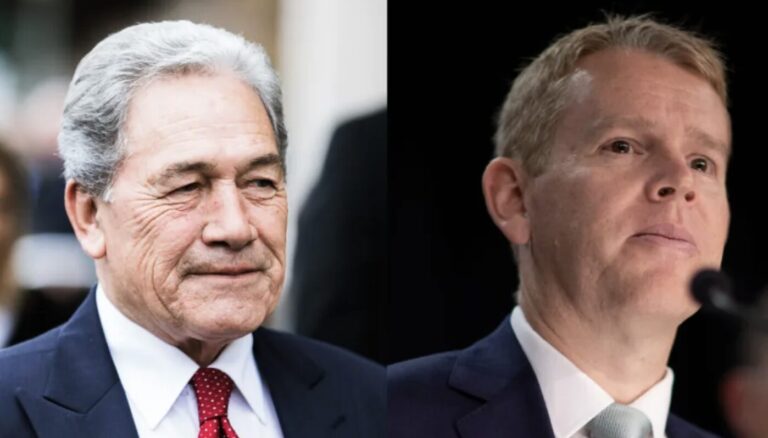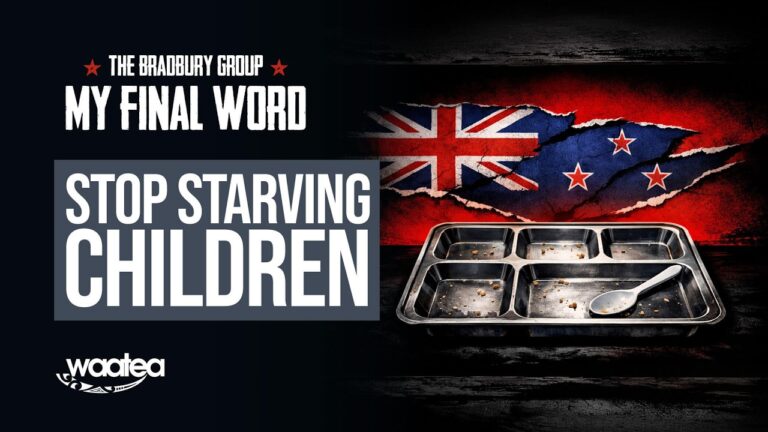Trusting the News?
The emergence of Breitbart News, Donald Trump and the alt-right media ecology inspired a cornucopia of conspiracist websites and streaming services. Their content flows across social media platforms and percolates into everyday life. Falsehoods concerning COVID-19 and vaccine medicine have contributed to the process.
One standard trope is that the mainstream media (radio, television, press) are corrupt, state-controlled and purveyors of “fake news.” Of course, the real situation is more complex. Fake news, along with other forms of disinformation, can be found anywhere, but mainstream media institutions are at least answerable to professional codes of conduct, official standards of basic accuracy and the legal proscriptions of defamation. Meanwhile, the volume, speed and immediacy of noxious, online traffic overwhelms the slow-moving routines of fact-checking and verification.
Yet, the growing reliance on social media co-exists with a trust decline in mainstream media. The 2022 Edelman Trust Barometer report covering 36,000 plus respondents from 28 countries found that 50 percent trusted their media. The survey fieldwork was conducted in November 2021. This represented a significant decline. In May 2020, 56% had expressed trust in their media https://www.edelman.com/trust/2020-trust-barometer). Among New Zealanders, the decline in trust has been far greater. In 2020, 62 percent of New Zealanders trusted the news they consumed. In 2022, the figure dropped markedly to 52 percent. These findings arise from Trust in News in Aotearoa New Zealand 2022. This report, co-authored by Merja Myllylahti and Greg Treadwell, is published by AUT’s Journalism Media and Democracy (JMAD) Research Centre. Readers of this blog will be familiar with JMAD’s other major publication, on media ownership in Aotearoa-New Zealand. This year’s Trust in News report, the third of its kind, applies and extends a questionnaire template set out by the Reuters Institute for the Study of Journalism in its international Digital News Report. In New Zealand, an online survey of 1,085 adults was carried out from February 22 to March 1 this year. Allow me to identify and consider some key findings.
First up, engagement was high. Seventy four percent of respondents were interested or extremely interested in the news. In terms of news sources, TVNZ and Stuff were mentioned by 64 percent of those sampled. Newshub/TV3 was mentioned by 49 percent, NZ Herald online by 48 percent and Radio New Zealand (RNZ) by 32 percent. Approximately 43 percent of respondents named social media as a news source. These figures suggest that established media institutions and social media platforms compete for the attention of news consumers. For many New Zealanders, social media news is an important component of their overall news diet. However, it seems that mainstream news media is especially distrusted. Of the 182 people who supplied comments to the survey, approximately 26 percent said that they didn’t trust the media because it was funded by government.
From the verbatim comments recounted in the report, one point is clear—hardly anyone understands the difference between state-led media and public media. Rather, it is claimed that the government “buys” journalists with grants and funds, that mainstream media are “just a propaganda wing of government” and that “New Zealand news is sadly in the pocket of government.” Specifically, most well-known news brands saw significant declines in trust from 2021 to 2022 and from 2020 to 2022. They include RNZ, TVNZ, Newshub, Newsroom, the NZ Herald and Stuff. These figures should be put alongside the answers given to another set of questions. Interviewers asked respondents whether they were concerned about the blurring of real news and fake news on the internet. Sixty five percent of respondents expressed such concerns, compared with 68 percent in 2021. This drop, as I will later explain, coincides with an increase in extremist conspiracist content across New Zealand social media platforms.
Against this backdrop, the report found, also, that approximately 14 percent of 2022 respondents were not concerned at all about the quality of content on the internet. There was far more concern about the reliability of mainstream news media. In this context, respondents were asked about poor journalism (e.g., stories with spin or twisted facts to push a particular agenda, stories made up for political or commercial reasons, stories that turn out to be advertisements). Approximately 36 percent of the sample were extremely concerned about such trends, compared with 30 percent in 2021. The point here is not that the mainstream media is being criticised unfairly. Rather, it’s that the level and vehemence of the criticism is disproportionate. Respondent criticism of social media sites was comparatively less even though online misinformation and disinformation had been increasing.
The findings of this report complement those of the Disinformation Project from Te Punaha Matatini at the University of Auckland. In a working paper published late last year, Kate Hannah, Sanjana Hattotuwa and Kayli Taylor analysed the spread of mis- and disinformation across social media from 17 August to 5 November 2021. Over this period, the COVID-19 Delta variant arrived, the government introduced a Level 4 lockdown and vigorously instituted a nationwide vaccination campaign. The researchers found “a sharp increase in the popularity and intensity of COVID-19-specific disinformation and other forms of “dangerous speech” and disinformation related to far-right ideologies”. More particularly, they found increases in “volume (amount of content), vectors (platforms and apps [that] content is produced and shared on) and velocity (speed at which content is produced).”
These trends predate the nationwide spread of anti-mandate protests and the three-week occupation of parliament grounds over February and March. During that time, social media disinformation reached a new intensity. The streaming site Counterspin, for example, provided 24/7 coverage and directives for the protesters. So, on the basis of JMAD’s Trust in News report and Te Punaha Matatini’s online dis- and misinformation research, I make the following observations. These should inform further research.
- Continuing corrosion of trust in the news media will further discredit and devalue the principles of journalism.
- Lack of trust in news media combined with social media disinformation will fuel extremist political sentiments with uncertain electoral consequences.
- Declining trust in the news media coincides with declining trust in government per se. A growing disillusionment with the political system and public institutions is the likely outcome.
- The preceding tendencies are symptomatic of a deeper trend—society is fragmenting as disparate groups talk past each other.







The author’s premise needs far more examination; ‘mainstream media institutions are at least answerable to professional codes of conduct, official standards of basic accuracy and the legal proscriptions of defamation. Meanwhile, the volume, speed and immediacy of noxious, online traffic overwhelms the slow-moving routines of fact-checking and verification.”
The real truth is that the state and the media both serve the same purpose – elite interests and narratives. There are official enemies and false binaries created by the media and the state everwhere: Russia, “Anti-vaxxers”, anti-science… this is the fundamental dereliction of responsibility to the truth that then compounds in several situations where the establishment – state and media – are screaming black is white. They have the power of authority and coverage that dwarfs the “conspiracy sites”. Most people I know follow excellent social media thinkers who ask inconvenient questions and provide inconvenient facts. Look at the OPCW Ghouta shambles – the whole western coverage of Syria, or Assange. We have seen over years the entire falsehood of the MSM narrative. Some may be just useful tools, but others are System Pigs knowingly collaborating with deceit. And knoing they will be ok because repat, repeat, repeat.
Thinking people aren’t concerned about social media because they normally just get exposed to one or two facts or sensible questions that poke holes in this veil of narrative – the fact may be even from their own life! Which puts utter lie to the MSM claim to “we are truth”. Insisting they are truth and not at fault is the biggest problem. Because there is arrogance, elitism, and pure falsehoods woven into the mainstream media narratives. And yet it is those narratives that move pubic opinion and thought. This is why when you have power you should always look to your own actions first rather than “do research” to blame others. Like this article, they do not. This is why thinking people are more concerned with the state of the narrative of power rather than the counternarratives.
Another point of reference, Colman Hughes interviews Ashley Rindsberg on the history of ‘misinformation’ and ‘access-journalism’ of the NYT.
https://www.youtube.com/watch?v=PEAbLQWOLA4
The lab leak hypothesis, a story once regarded as ‘misinformation propagated by conspiracy theorists’
“This story is based on more than 100,000 internal EcoHealth Alliance documents obtained by Vanity Fair, as well as interviews with five former staff members and 33 other sources. The documents, most of which predate the pandemic, span a number of years and include budgets, staff and board meeting minutes, and internal emails and reports. While the documents do not tell us where COVID-19 came from, they shed light on the world in which EcoHealth Alliance has operated: one of murky grant agreements, flimsy oversight, and the pursuit of government funds for scientific advancement, in part by pitching research of steeply escalating risk.”
https://www.vanityfair.com/news/2022/03/the-virus-hunting-nonprofit-at-the-center-of-the-lab-leak-controversy
Another point of reference and social media (twitter) suspending Scott Ritter (former UN weapons inspector in Iraq). It’s worth hanging around for Ritter’s full commentary on Bucha at 11mins.
https://youtu.be/mdm1u0fDy1E?t=665
The western media narrative is premature.
I think asking about trusting social media generally ignores the users’ preferences for the kind of ideas and reports they see – ie can depend on the social media accounts each person chooses to follow and their ‘friend’ networks.
On gender identity ideology mainstream media have been extremely biased, following the propaganda from Rainbow organisations and presenting negative comments/smears about gender critical feminist views and organisations. RNZ and Stuff do this all the time.
They don’t present the views of those of us who are LGB and sometimes T and I(ntersex), who are highly critical of the lines pushed these days by Rainbow organisations (ie they don’t acknowledge biology and science show that sex is either male or female, or very rarely, neither, can be correctly identified in utero and at birth, and cannot be changed). In contrast ‘gender’ is seen by many as being a social construction.
The mainstream media tend to highlight those trans people who present a positive image and don’t refer to any of the downsides of medically and surgically transitioning. They tend not to focus on those who ID as trans and merely are cross-dressers, or gender non-conforming, and don’t transition medically or surgically. They don’t present the dubious loopholes created by self ID and ‘conversion therapy’ legislation.
In contrast, mainstream media, including RNZ and TVNZ, have presented endless highly critical reports on the government’s other policies, especially those related to Covid. They seem to shill for both the tourist industry and for the real estate and property investors, while the plight of renters and low income people tend to get secondary consideration.
At other times, mainstream media can publish some very informative, well-researched articles with fairly balanced accounts for and against some issues.
This research and summary shows a complete lack of introspection and self-reflection as to why mainstream politics, media and elite culture are loosing public trust. It taps into all the usual tropes about what fills the vacuum but not what causes the vacuum in the first place.
It’s the Hillary Clinton school of ‘not my fault’ and blaming the public
Glen Greenwald has written extensively subject, his latest piece is here
https://greenwald.substack.com/p/your-top-priority-is-the-emotional
Matt Taibbi even wrote a book Hate Inc.
https://www.goodreads.com/book/show/44579900-hate-inc
Is this the same Glenn Greenwald?
https://amp.theguardian.com/world/2014/sep/15/moment-truth-greenwald-dotcom-snowden-assange-new-zealand-john-key
Yes
When the TV news can get so excited and blab on for days speculating about the recent bad behaviour at the Oscars, one wonders if any of their other ‘news’ items are of any importance at all.
Their time is very limited each evening and this non-event from another country between two spoilt brats was not news. It was sensational to a few when it happened, after that it was a waste of time.
Sometimes we see on TV news their so called reporters standing in the dark somewhere, could be anywhere, but they assure us they are outside the very place where some event of great moment occurred that day. Who cares? Did they really need to go there and say exactly what has already been said by the news reader in the studio. Or even more uselessly tell us that ‘not much more is known at this point but…’ Where is the in-depth background work which they could have been finding to inform us better about the repercussions or meaning of this event?
In the face if such pathetic news coverage it’s no wonder the illogical go looking for better information and stumble across the worst information. Their lack of critical thinking skills convinces them that they have discovered something that no one else has figured out yet. ‘Course they feel special and want to share their findings.
If relatively sensible old twits like me can seriously wonder why we bother looking at any TV news when it is so biased, lacking is educated analysis and poorly presented, is it any wonder others have given up.
Another thing is, been a problem for decades now, half the population is still at work or sitting on the motorway trying to get home at 6p.m. when the main news bulletins are on TV.
News has never been a high priority for the TV channels since it was moved from 7.30 pm.
The young who need good information do not have time or leisure at the right time of day, to listen to RNZ. Podcasts need organizing. Much easier to settle for other people’s mish-mash of opinions with few facts, on social media which they can access at anytime.
OR just do something more fun!
In a NZ context we often have opinion masquerading as news and what news we do have is often very one sided.
If you were to take the Convoy protest as an example Stuff were deriding it as it approached Wellington coverage more or less was about trolls and spotify playlists when they should have been asking why and what if any plans police and politicians had to deal with it. Once underway initial coverage was childish cheering on the speak andnhus sprinklers for example. That lack of balance drives people into the arms of the likes of counter spin.
Anyone who doubts agendas with “news” should watch CNN for a few hours and then do the same with Fox news. One sees a news release as very positive or best overlooked piece of news, while the other reports the same news release as being a disaster that needs to be aired urgently. The Hunter Biden laptop yet another example. Fake news to be ignored or enough to bring down the POTUS.
In NZ, both TVNZ and Stuff news could easily be renamed “Woke Update”.
But Thinking Man do you think TVNZ being “woke news” is the same as the government buying or controlling the domestic narrative as some people seem to be convinced of? I will admit I watch the news at 6 on one most nights ( well the first 10 mins at least) and I don’t get how people could think it’s doing the incumbent administration any favours whatsoever. Its the same with print media like stuff. I get the woke comments but anything potentially positive has a negative slant. House prices going up sharply bad. House prices turning the corner coming down… you guessed it talk of will it crash etc. it doesn’t seem long ago Ardern knew all about a rape and looked like she would have to resign. Did she pay for that sort of shit?
These are genuine questions of your opinion by the way, I am not being critical of your comment
Check out this report and the graph on page 9, which shows that NZers like far-right Facebook pages at a rate four times that of the supposedly hopeless unstable United States, Brexit Britain and trucker-protest Canada: and even twice that of Australia, with its legacy of poisoning the aborigines’ water holes (per capita): https://www.isdglobal.org/wp-content/uploads/2021/06/NZ-Online-Extremism-Findings-Report.pdf (‘Understanding the New Zealand Online Extremist Ecosystem’ by Milo Comerford, Jakob Guhl and Carl Miller, London, ISD 2021, produced with assistance of NZ Dept of Internal Affairs,). The authors note however that NZ’s potential army of hooligans lacks any organising force and are mostly responding in a purely online sense to stuff they get from overseas. As Chris Trotter would say, we don’t yet have a ‘drummer’ in this country. Not yet.
A classic view of academics disdain for the public People don’t trust Establishment media and think journalists have been bought by the government, Ergo people dont understand . There is no attempt to consider whether the public might be right.
What makes you think the media has been bought by the government John? If it has I would be asking for my money back. The news is invariably so f*cling negative, and just one enormous whinge fest, that it defies belief that it’s trying to make the government look good. I guarantee most people will end up voting the current government out and it won’t just be based on their bullshit Facebook feeds. For a good number it will be based on their opinion formed from mainstream media sources.
Team of $55 Million ring a bell?
No, it activates the Bullshit Detector.
Ring a bell? Not an alarm bell no.
Media is 90% anti-Labour, hate Jacinda and are promoting NATZ and ACT for government, Why cant Tory Times herald and Tory Talk ZB balance their media platforms with equivalent raving social democrat presenters, writers and journalists who not influenced by the NATZ dirty politics team.
From the media’s own advertising for themselves it appears they are buying into this reality.
How often do you hear the “…News you can trust” line of self promotion? Like this is some point of differentiation between them and everyone else trying to suck in your eyes and ears to sell in to their advertisers. I take it as a Trust us and not them despite 9 out of 10 times it’s the same flipping message.
I’m probably a bit of a cynical salt swallower and often only refer to them these days for the rugby scores and weather. And has Fake Weather become a thing yet?
Generally , the only distrust I have in NZ media, is within the realm of world news.What we see on TV for instance , night after night re Ukraine is an unverified repetition of partisan CNN, BBC style news.We, in 5 Eyes ,toe the line and must be propagandised accordingly.
Most of Kim Hill’s interviewees when it comes to Russia have been curated to include only the well known anti Russian propagandists.In effect Kim becomes a publicity agent for Russophobic book deals
LukeHarding, Peter Pomerantsev, Bill Browder and all the rest for gods sake.There is a possibly unintentional bias here.Books written by actual Russian experts are few and far between because there is no profit for more academic and nuanced publications.Therefore we end up with a biased view, propaganda in effect.
Take the last couple days of TV1 news:
> An article slandering the vaccine mandate protesters by accusing them of believing in ridiculous ‘straw man’ conspiracies. All while ignoring the key point; mandates are in effect a forced medical procedure that is
a breach of the Nuremburg Declaration.
> Claiming a single weather event of being due to ‘climate change’ when in fact there is no peer reviewed and published science to show that. It’s just opinion pushing a political narrative
> Exaggeration of an issue with drinking water in one locality as a softening up exercise for 3 Waters.
> An article on 3 Waters that deliberately avoids mentioning the 50% Maori representation on the controlling board.
“Enforced procedure”. No it’s not.
Again to entertain the delusional, why go out of the way to create a climate crisis? What is to be gained politically by telling people and the associated industries behind their lifestyles, that things need to do be done differently? Your conspiracy style position makes no practical sense.
Whether or not media in NZ are impartial, the perception that they’re not is too easy to form given they have taken millions from Labour and agreed to editorial limits and constraints in order to secure the cash. This needs to be accepted as the media will continue to be pilloried and dismissed as long as they are perceived to be in the pocket of Labour.
Furthermore, is it also possible that we are experiencing the collapse of one form of media as a new forms emerge? Eric Weinstein’s ideas around the Gated Institutional Narrative are pertinent to this debate insofar as the traditional powers that be are losing control of the so called narrative and as they do trust is being lost because the wider population can see that the emperor has no clothes / the wizard is pulling levers.
I believe traditional media is dying – if this is true, then what follows? The internet has led to disaggregated industries and this is happening in media with the likes of sub stack’s ascendency. Massive juggernaut media conglomerates are no longer needed which has allowed an explosion of alternative ideas and news sources to proliferate. Some good, some less so, but all present new ideas many of which threaten and undermine the existing narrative. It’s this that has so many up in arms for how dare the proles think for themselves.
Push that further and layer on an ever accelerating level of awareness and understanding of events delivered through the free movement of information and ideas coupled with new forms of currency such as bitcoin and then consider the future of national governments. If the latter cannot take my income by force as they do now through taxation paid by compulsion and threat of jail in conjunction with a deep understanding across a nation or nations that the ‘elite’ all liars, incompetent and as flawed as the rest of us then what?
Unless the media, the politicians, etc. start to truly act for all people of a nation they’ll be very few nations left.
Are you surprised by this? Really?
I watch the News every night just to hear what the enemy is saying